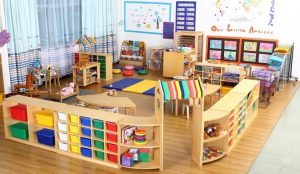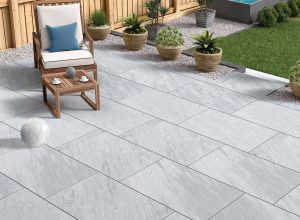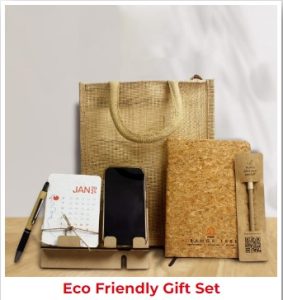NCERT Solutions for Class 10 English Main Course Book Unit 6 National Integration Chapter 1 Unity in Diversity
4 min read
NCERT Solutions for Class 10 English Main Course Book Unit 6 National Integration Chapter 1 Unity in Diversity
NCERT Solutions for Class 10 English Main Course Book Unit 6 Chapter 1 Unity in Diversity are part of NCERT Solutions for Class 10 English. Here we have given NCERT Solutions for Class 10 English Main Course Book Unit 6 Chapter 1 Unity in Diversity.
| Board | CBSE |
| Textbook | NCERT |
| Class | Class 10 |
| Subject | English Main Course Book |
| Chapter | Unit 6 Chapter 1 |
| Chapter Name | Unity in Diversity |
| Category | NCERT Solutions |
CBSE Class 10 English Main Course Book Unit 6 National Integration Chapter 1 Unity in Diversity
TEXTUAL EXERCISES
Question 1.
During the journey, Rohan and Rajini both note down the information they gather about the states they travel through. When they return they jot down this information.
Working with your partner, choose any one journey and complete the grid for them. You may access the internet or refer to hooks in the library to complete your grid.
- The states that they pass through.
- The variety of languages they hear.
- The local cuisines they enjoy.
- The local handicrafts they buy for their family from each of the states they pass through.
- The weather they experience.
| STATE | LANGUAGE | CUISINE | HANDICRAFTS | WEATHER |
Answer:
| STATE | LANGUAGE | CUISINE | HANDICRAFTS | WEATHER |
| Jammu & Kashmir | Kashmiri, Dogri, Laddakhi, Balti | Kashmiri Dum aloo, Gustaba Tabakmas, Kahwa | Carpets, shawls | Summers are pleasant Winters are cold |
| Punjab | Punjabi, Hindi | Roti, Paratha, Chole, Rajma, Dal, Rice | Woollen blankets, carpets | Weather changes with season, hot, cold, rainy, spring |
| Haryana | Hindi, Haryanvi, Punjabi | Roti, dal, vegetables, milk and its various products | Earthen pottery, moorah making, khes, dari etc. | Changes according to season |
|
Uttar Pradesh |
Hindi and Urdu | Vegetarian, Mughlai and Tandoori dishes | Wood furniture, brass vessels, locks, marble- ware | Cold winters, hot Summers |
| Rajasthan | Rajasthani & Hindi | Dal-bati-ehoorma and other vegetarian dishes | Tie & Dye work, woollen carpets, gharai kagzi pottery | Very hot in Summer a little cold in winter |
| Gujrat | Gujrati and Hindi | Roti, dal, kadhi, basundi, malpua, puran poli, Thepla | Furniture, clay items, stone craft, embroidery | Winter pleasant Summer very hot |
| Maharashtra | Marathi, Hindi, Urdu | Vegetarian, Bhelpuri and Tandoori non-veg. Cuisine | Paithani, chandrakala, Dharwadi sarees, copper and zinc vessels | Summer are hot Winters are pleasant |
| Karnataka | Kannada | Dosa, idli, wada, sambar, rice etc. | Silk sarees and handicrafts | Pleasant Winters hot Summers |
| Kerala | Malayalam | Rice, fish, coffee, home made snacks including banana chips | Dress of Kerala, Clothing is quite simple and typi cally untailored. Men wear shirt and dhoti and women Wear sarees. | Hot Summers and pleasant winter |
Question 2.
What conclusions do you draw from Rohan and Rajini’s experience ?
Answer:
India is a big country. There is a great deal of variety in the clothes they wear and the food they eat. There are different creeds. Festivals are dedicated to seasons and harvests. There is a heartening feeling of pride in these festivals. In spite of the great variety, there is great unity among its people. They live in perfect communal harmony.
Question 3.
Present your conclusions to the class.
Answer:
Please do it on your own.
Question 4.
Where are they from ?
Answer:
Mainly meant for class.
Class-room activity
- Speaker A : Gujarat
- Speaker B : Karnataka
- Speaker C : West Bengal
- Speaker D : Uttrakhand
Question 5.
Look at the pictures given below. Decide in your group which regions the six photos probably come from. Explain why you think so and find out from your teacher if you were correct. Then write a short caption for each photograph. It can be serious or funny.
” alt=”” aria-hidden=”true” />

” alt=”” aria-hidden=”true” />

Answer:
The architecture of the building in picture no. 1 gives the idea that it may be a Hindu temple. The tall but not round structure at the top is much like what we find in Hindu temples. It has a sanctum sanatorium in which the idol of the chief deity is installed.
The picture no. 2 seems to be a mausoleum. It is so because there is no place for prayer etc, which is the hallmark of a religious place. Or it may be burj of a palace in Rajasthan.
Picture no. 3 is clearly a folk dance. The dresses of the girl and the boy brings to mind Maharashtra. Hence it is very likely to be a folk dance of Maharashtra.
Picture no. 4 is a tea garden. Such tea gardens are found in Assam or Darjeeling or Ootacumand in Tamil Nadu.
Picture no. 5 gives the picture of a river and a series of temples by its side. It is a religious place, Varanasi in Uttar Pradesh.
We hope the NCERT Solutions for Class 10 English Main Course Book Unit 6 Chapter 1 Unity in Diversity help you. If you have any query regarding NCERT Solutions for Class 10 English Main Course Book Unit 6 Chapter 1 Unity in Diversity, drop a comment below and we will get back to you at the earliest.



